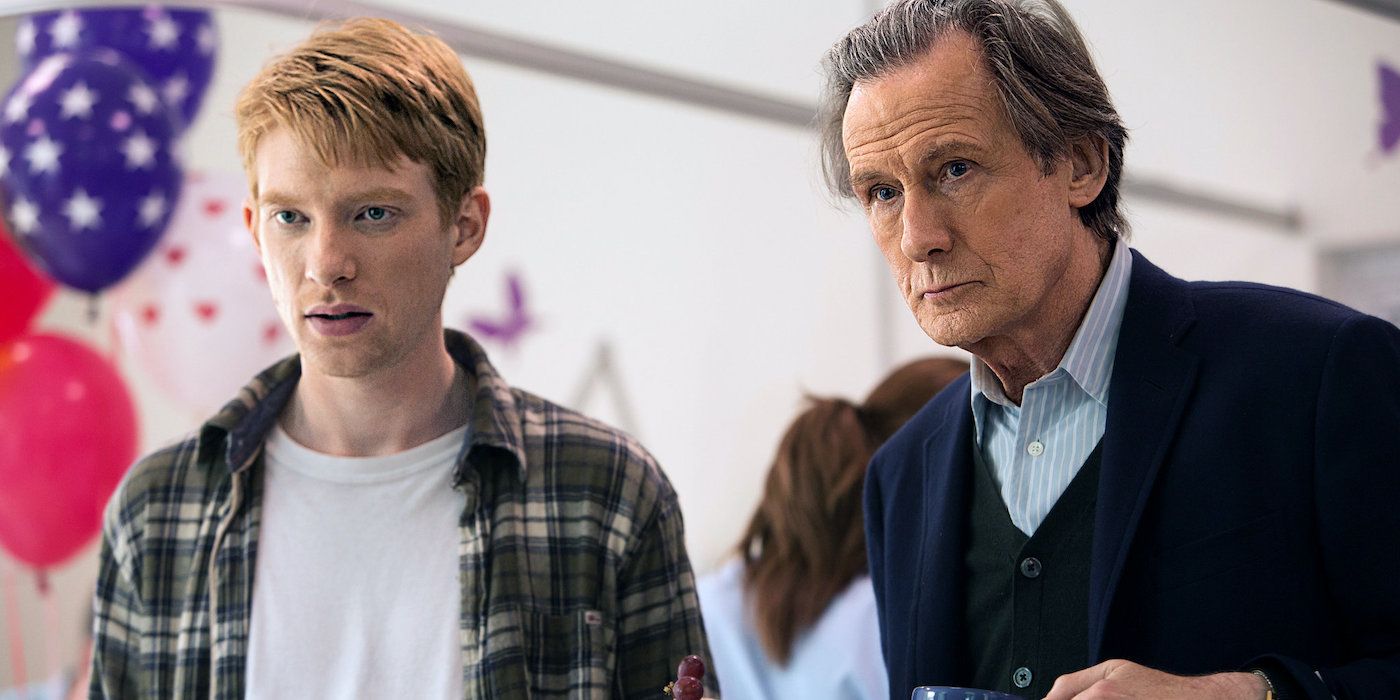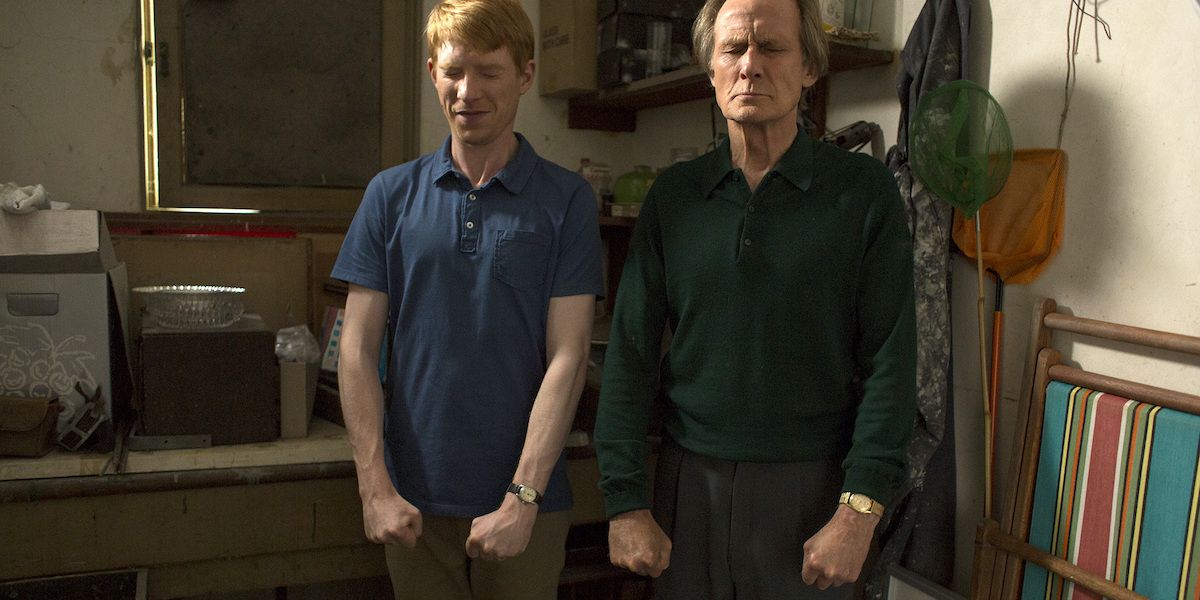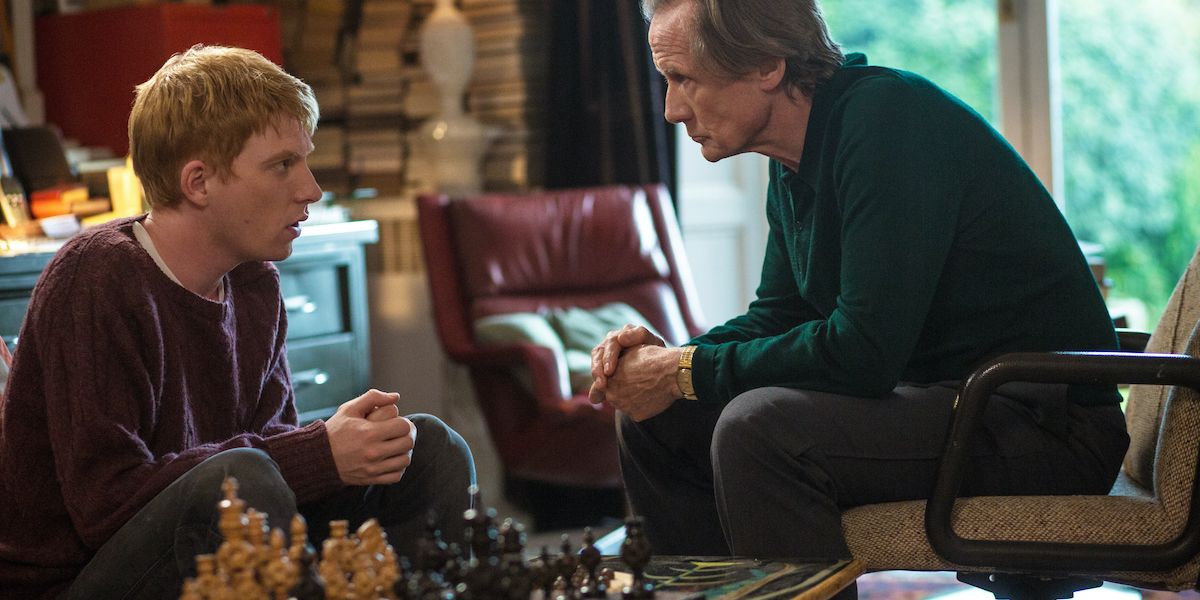Writer and director Richard Curtis is best known for his charming, insightful, and endearingly quirky films. It’s likely you’ve spent many nights and holidays with his famous romantic comedies: Four Weddings and a Funeral, Notting Hill, Bridget Jones’s Diary, Love Actually, and Yesterday. Or, maybe you’ve caught some of his eccentric comedies, like the Mr. Bean series and The Boat That Rocked. In each of these stories, he capitalizes on traditionally romantic and comedic genres and sneaks in beautiful observations of seemingly ordinary moments in life. All of his projects, even Steven Spielberg’s War Horse, gently capture people in their most authentic moments. He makes the dull seem genuine and the mundane feel unique. Curtis is romantic about life, but not just the convenient bits.
About Time's sentimental scenes honor the idiosyncrasies in life and ask us to reflect on how we treat time. There is nothing more wonderful than a normal day. But what entails a normal day for you? The first sip of therapeutic coffee (or tea)? Being trapped in endless traffic? A thankless boss and tedious job? Maybe a disinterested and preoccupied partner at dinner? For some, these moments may very well reflect a normal day, but About Time asks us an important question: Were you really looking?
Curtis continues his delightful approach embedding appreciation for ordinary moments through the romantic comedy vehicle with 2013s About Time. A film expertly populated with relatable characters, all portrayed by an equally relatable ensemble cast. On his time-traveling quest for love, the endearing and witty Tim (Domhnall Gleeson) develops a beautiful relationship with Mary (Rachel McAdams). Soon they are married and start a family, allowing for the greater thesis about time to unfold. Outside of their romance, is the relationship between a father and his son. Tim’s father (Bill Nighy) is a guide for his inherited time traveling abilities, but his father leaves him with much more than this superpower: perspective.
Generational trauma is a common throughline in stories that feature fathers passing down traits to their children. However, it’s rare if fathers impart emotional lessons, because father figures are often written with fantastical or even toxic arcs. Many stories, old and new, center around a father sacrificing himself for his family. These stories can sometimes endorse household patriarchies that are complicit in a father’s savior complex. Even well-intended films like Ransom, The Patriot, Taken, or Interstellar, all focus on fathers who save their families from absurd danger. Highlighting fathers through these false narratives may convey unhealthy narratives to children who are already pressured by toxic constructs, especially boys. Whereas, rare father stories, like Boyz n the Hood, Finding Nemo, or Pursuit of Happiness, all emphasize fathers who motivate their children without needing to be the archetypical hero in the end. Healthy father films encourage open mindedness and perspective, and About Time is in that exclusive tier.
Curtis argues the success of About Time and its rare father figure can be attributed to the incredibly nuanced performance from Bill Nighy. Viewers are able to visualize their own father into Nighy’s approachable character. Curtis shares how Nighy, one of the most idiosyncratic actors working today, influenced the gentle disposition of the movie in a Vulture interview: "[Nighy] wanted to do as little as possible so that it would, in a way, leave a space for everyone to imagine their father into the role. And I think I always wanted it to be a very modest performance, because I think there was a way of that going very wrong, you know? Him being a mustache-twirling English eccentric who locks his son in his study and tells him the great mystery. I always wanted it to be the most gentle thing.”
The morning of Tim's 21st birthday, you're introduced to Nighy’s marionette-like performance in his intricately cluttered office and immediately fall in love. His tone is kind, the dialogue is honest, and his intentions are sincere. All of these qualities are expressed while uttering the most improbable sentence of Tim’s life: “Get ready for spooky time. But there’s this family secret - and the secret is… that the men in the family can - travel in time.” Curtis’s obsession with perspective and thinking deeply about the role fathers can have in their sons' lives is illustrated by his writing choice to limit their ability, as they can only travel back in time and not into the future. The metaphor corrects a common father archetype of force over reflection. Instead of dwelling in the past or barreling toward the future, Tim's father wants him to wisely examine his past to positively affect his present and future.
A father-son conversation after Tim experiences his first moment of time jumping carefully encompasses the throughline of the film. Tim has been given a type of inheritance, a genetic time-traveling power, but also, metaphorically an emotional gift of perspective. Tim’s father establishes in only a few sentences that notoriety and riches can remove conviction and leave you hollow, or worse, make you lonely. He quickly diverts Tim’s materialistic aspirations to something more timeless, like love. But, more importantly, this is a moment where Tim’s father lets his son become independent, so that he can succeed or fail on his own. Tim begins his quest for a girlfriend, which after a few stints with Charlotte (yes, that is Margot Robbie), he realizes that he doesn’t easily connect with her. So, while we assume Tim is searching for love, his attraction to Charlotte is more shallow, implying that he’s still growing. Tim’s awareness and perspective gained from infatuation with Charlotte lead him to finding a more holistically sentimental connection with Mary. One conversation with his father about the cost of abusing his powers for material and superficial desires, subtly sets up the entire philosophy of the film's romance and greater theme, to appreciate time with the ones you love, revealed in the end.
A sorrowful third act begins as Tim finds out his father is dying from cancer. They have a somber conversation that is imbued with the greatest lesson any parent can leave for their child: perspective. A two-part lesson that focuses on how Tim should live his ordinary life day by day, like anyone else. But then, turn back time and restart each day of his life, without the anxiety from his first attempt. His father believed this would help him appreciate the extraordinary parts of his life. A wonderful lesson for the audience, to help us achieve a less cynical and enlightened perspective about our own lives. Tim finds out he’s losing his father for good and won’t be able to visit him with his time-traveling abilities or else he would lose his own children with Mary (time travel mechanics fall through here, but the metaphor still lives on). His father passes away, and the final lesson becomes the heart of the story, as even on his deathbed, he wants to pass on peace to his son.
The truest essence of Richard Curtis is delivered through a lovely, educational narration from Tim about how we're all traveling through time together, so why not make the most of it? About Time subverts toxic masculine tropes where a father infects his children with his own trauma, instead Tim adopts the best qualities of his father. A journey between a father and his son concludes with timeless advice from an evolved Tim (insert Jimmy Fontana’s Il Mondo): “And in the end I think I've learned the final lesson from my travels in time; and I've even gone one step further than my father did. The truth is I now don't travel back at all, not even for the day. I just try to live every day as if I've deliberately come back to this one day, to enjoy it, as if it was the full final day of my extraordinary, ordinary life.”



